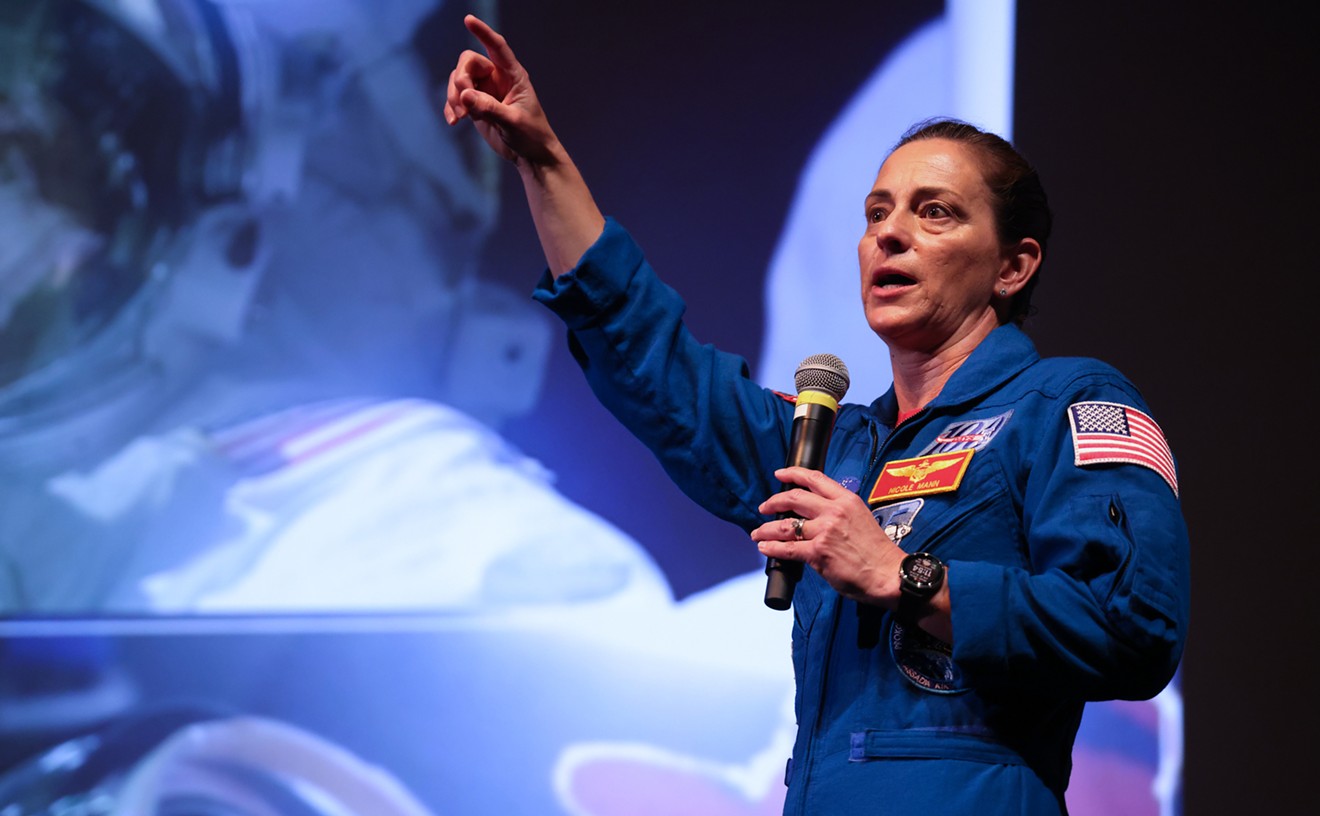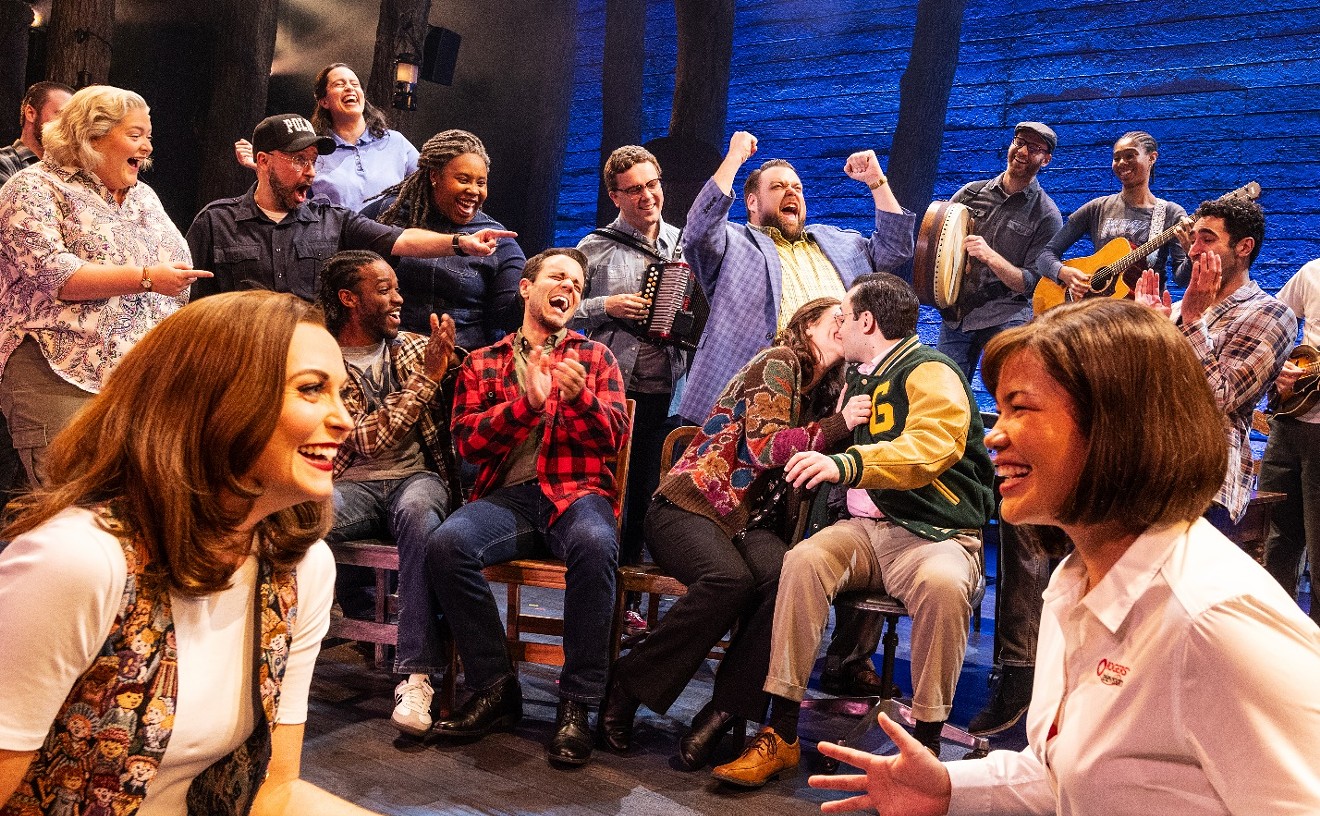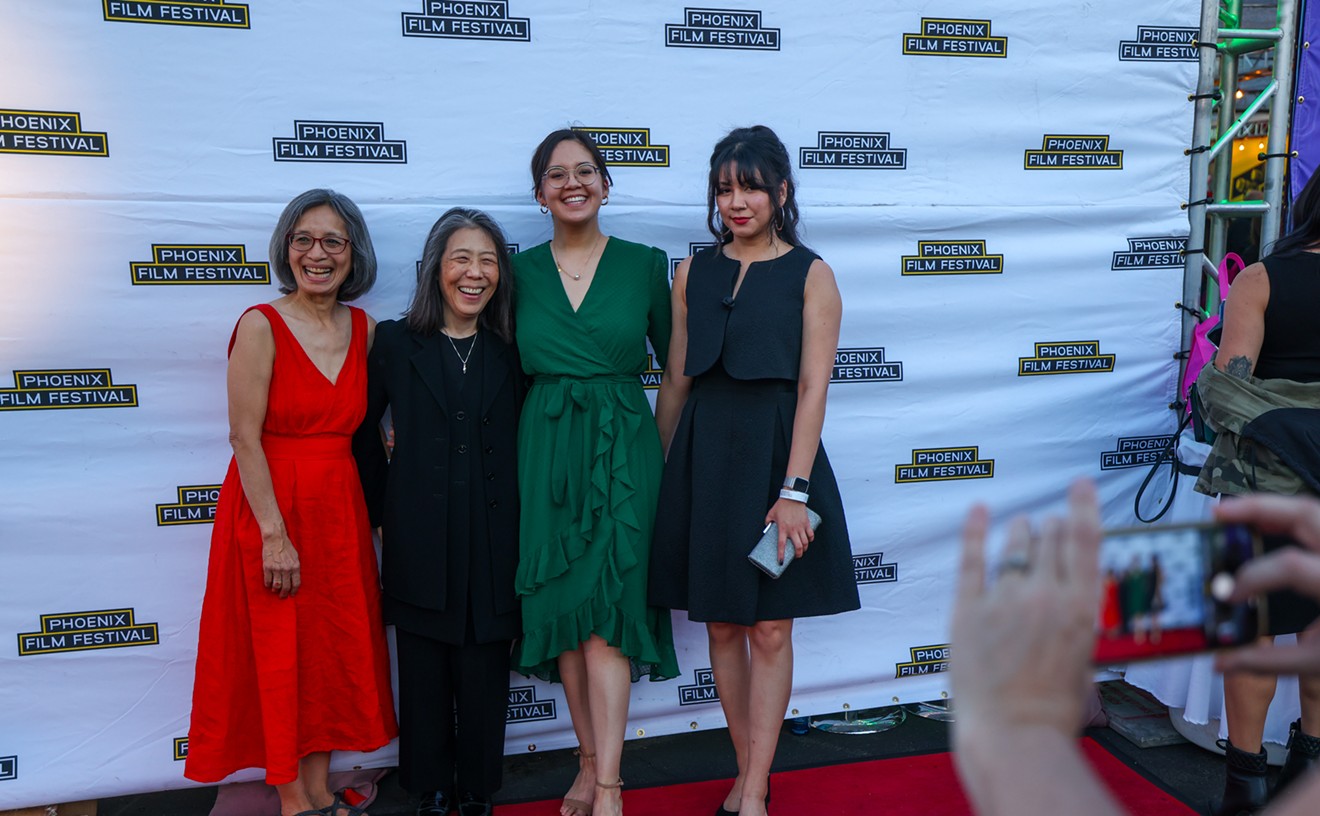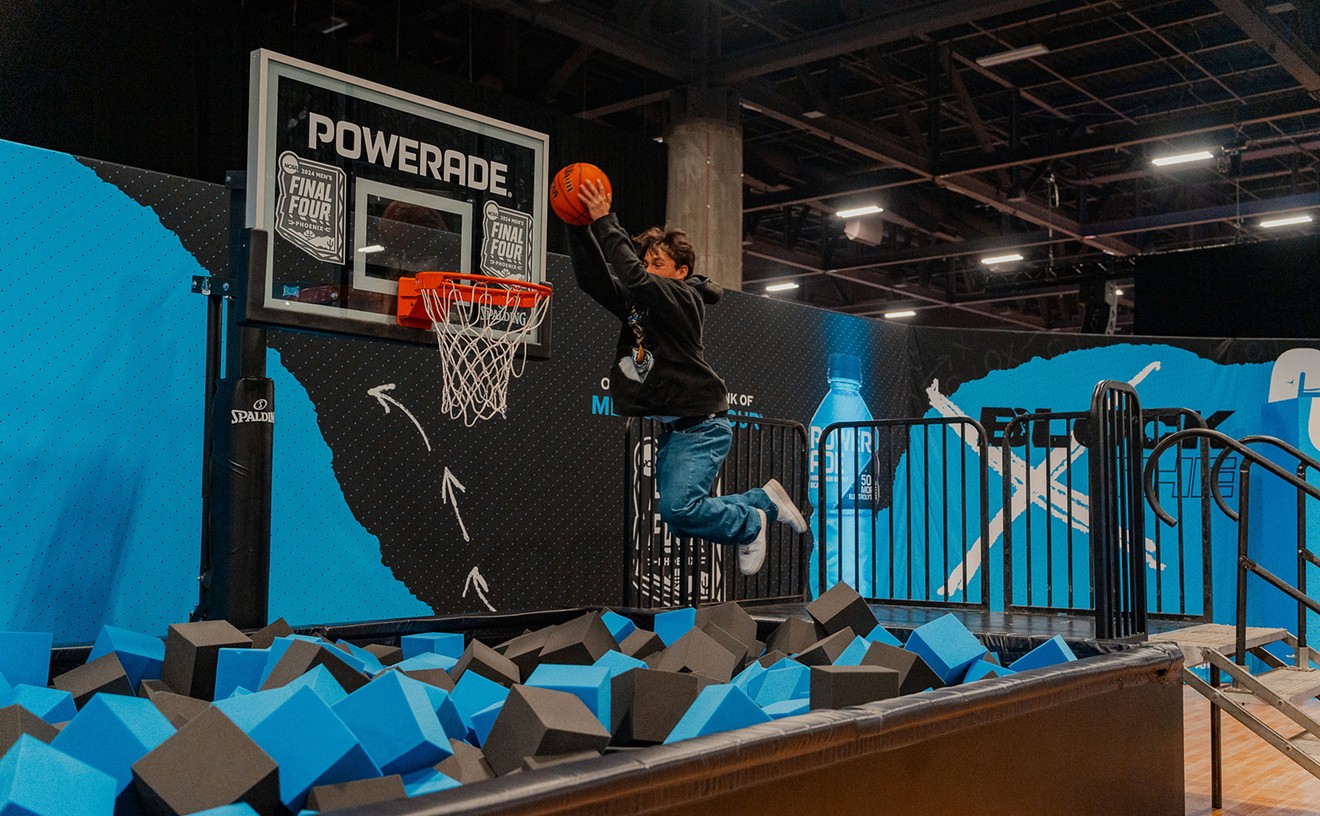Seed Spot’s Spring 2015 Demo Day Showcases Arizona Social Entrepreneurs
Seed Spot has earned some bragging rights. The Phoenix-based nonprofit specializes in providing budding entrepreneurs with the tools and mentorship they need to succeed. It's now helped 143 Arizonans be the change they want to see in our state through two-day workshops, five-day “bootcamps,” and 12- and 14-week intensive programs. Seed...
May 21, 2015
[
{
"name": "Air - MediumRectangle - Inline Content - Mobile Display Size",
"component": "18478561",
"insertPoint": "2",
"requiredCountToDisplay": "2"
},{
"name": "Editor Picks",
"component": "16759093",
"insertPoint": "4",
"requiredCountToDisplay": "1"
},{
"name": "Inline Links",
"component": "17980324",
"insertPoint": "8th",
"startingPoint": 8,
"requiredCountToDisplay": "7",
"maxInsertions": 25
},{
"name": "Air - MediumRectangle - Combo - Inline Content",
"component": "16759092",
"insertPoint": "8th",
"startingPoint": 8,
"requiredCountToDisplay": "7",
"maxInsertions": 25
},{
"name": "Inline Links",
"component": "17980324",
"insertPoint": "8th",
"startingPoint": 12,
"requiredCountToDisplay": "11",
"maxInsertions": 24
},{
"name": "Air - Leaderboard Tower - Combo - Inline Content",
"component": "16759094",
"insertPoint": "8th",
"startingPoint": 12,
"requiredCountToDisplay": "11",
"maxInsertions": 24
}
]
Seed Spot has earned some bragging rights.
The Phoenix-based nonprofit specializes in providing budding entrepreneurs with the tools and mentorship they need to succeed. It's now helped 143 Arizonans be the change they want to see in our state through two-day workshops, five-day “bootcamps,” and 12- and 14-week intensive programs. Seed Spot’s participants, or “ventures,” have a common thread: All are trying to solve a social problem by delving into new markets; many find a way to give back to the community via their business.
New partnerships with 52 high schools and with Univision have opened up room for Seed Spot itself to expand, and the organization shows no sign of slowing down. We went to their most recent “Demo Day” to see what this spring’s class of ventures bring to the table. This event, held at the Herberger Theater, was an opportunity for current participants in the program to pitch their idea to a large audience (in three minutes or less), and to articulate any needs that they might have (funding, board members, marketing, etc.). Tuesday, May 19’s event featured a huge and eager audience and some intriguing initiatives by Seed Spot entrepreneurs.
The event kicked off with an introduction by Seed Spot Co-Founder and CEO Courtney Klein. Klein discussed the successes of the program, which, among other things, include over $2.5 million dollars in capital investments paid towards Seed Spot’s ventures. Through a partnership with Kiva, participants have also received $67,000 in zero percent interest loans, which may contribute the program’s success: 88 percent of businesses incubated in the program are still in business.
Former venture Robert Thornton, founder of Paper Clouds Apparel and possessor of a fabulously full beard, spoke briefly about his organization. Paper Clouds Apparel works with adults with special needs to create designs for T-shirts, hats, and other items. They also hire adults with special needs to help out in their Phoenix-area facility. The company retails these items, then gives half their proceeds back to organizations that serve this population. Thornton talked about the boost that Seed Spot gave him, then talked about what his vision for the future is. Right now, Paper Clouds is trying to gain traction and celebrity sponsorship — as Thornton put it, “I’m not shaving this beard ‘til I get on Ellen.”
Liesl Harder Kielp, another Seed Spot alum, also presented on her company AguaSac. The company produces customizable, collapsible water bottles, and also employs adults with special needs. Harder Kielp hopes to see an AguaSac factory open in every state in the country.
Twelve of the spring 2015 class of ventures gave their pitches to a rapt audience. Many of the pitches were healthcare related. Sara Henry’s company, Wellness Lifestyle, was inspired by her parents coinciding deaths as a result of terminal cancer, and seeks to empower college students to sustain healthy habits. Wellness Lifestyle will also retail exercise clothing of their own design; proceeds from the sale of these garments will be used to implement wellness programs at colleges that do not have adequate funding to do so.
Dr. Frank Tsai’s company, Care Mission, aims to help doctors and cancer patients find slots in clinical drug trials. Dr. Tsai, an oncologist, spoke of the difficulty that patients encounter in accessing information about ongoing trials, his own mother’s death of cancer, and our medical system’s need to provide “better drugs to more patients, faster.”
Steve Wagner’s RightCare Foundation, exists to advocate for immediate cardiac resuscitation, particularly for the elderly. As he states, CPR is rarely performed immediately after cardiac arrest; instead, caregivers or bystanders will wait for ambulances or first responders to arrive. This results in brain death, which leads to ongoing medical issues and preventable medical expenses. RightCare aims to promote understanding, provide training, and advocate for best practices when it comes to CPR.
Other organizations, like Chelsea Harden’s Harden Education And Recreational Therapy (HEART) Center, fit a more specific educational need. The HEART Center, a school for children with developmental or cognitive disabilities, will provide daily academic training and recreational therapy. Harden, who currently does horse therapy with children with special needs, hopes to open the school on three acres of land in North Phoenix, and provide a unique educational experience to these unique children.
The Nagi Foundation, presented by Sheila Iyengar, is working to promote welfare for both women and animals on the Salt River Pima-Maricopa Indian Community. While the concept seems broad at first, it touches on a number of important issues affecting this community. Iyengar has worked with young women on the reservation, and is an animal trainer and behaviorist by trade. On this particular reservation, there are 1-2 dogs per person, which are cared for by the community. Iyengar noted that these dogs provided comfort to the women she worked with, and that their presence allowed them to open up about painful subjects. But their sheer number presents a problem to the community. The Nagi Foundation seeks to spay or neuter and vaccinate the dogs on the reservation, and to employ their calming powers at an empowerment center for young Native women.
Arizona Vision and Hearing, founded by teacher Dana Evans, also has its roots in the educational system. The company is working to streamline the process by which children in Arizona’s schools are screened for vision and hearing loss through the use of a computer system called “AVA.” AVA follows up with parents if their children does not pass a vision or hearing screening, and provides them with resources. It alerts schools when children are absent on a screening day. iPad or Smartphone data entry eliminates the paperwork process, and reduces the overall cost of screening to the schools.
We were intrigued (and made a little hungry) by Purpose Pops, a venture founded by Andy Patterson. Patterson has developed a line of ready to eat, portable frozen smoothies with no added sugar. The Pops are currently available at Whole Foods and AJ’s stores in the Valley. He’s taken his concept one step further by partnering with local food banks to transform donated perishable fruits and vegetables (which may otherwise go to waste) into smoothies, which extends the shelf life of these foods by up to a year. These pops will then be re-donated to food banks, schools, and other agencies in need of healthy meal options.
Other ideas were just plain weird. Our “First World Problems” award must be handed to Love and Startups, presented by Nicole Cottrell. Love and Startups is an online marriage advice and support community specifically targeted towards entrepreneurs and their non-entrepreneur spouses. All right then.
The event also featured pitches by participants in Seed Spot Next, Seed Spot’s program for high school students. The award for best venture at the Next demo day, held earlier this week, went to Braille Board. The concept, presented by Tesseract High School students Carolina Ahlgreen, Max Whooley, and Josh Kaplan, is simple but brilliant. Braille Board is an Braille and large-print keyboard that attaches (via bluetooth) to a smartphone, allowing users who are blind or visually impaired to send text messages or type emails.
A sneak peek into Seed Spot’s recent partnership with Univision, a televised event called Véndeme Tu Sueño, was also provided at the event. Véndeme Tu Sueño has selected 20 entrepreneurs from a pool of over a hundred. These individuals will go through an intensive five-day Seed Spot “bootcamp,” then three will be given spots in Seed Spot’s Fall 2015 class of Ventures.
In the end, the spring class of Seed Spot ventures walked away with a lot of opportunities. Arizona Vision and Hearing won six months of free desk space at Seed Spot, as well as a $2500 stipend for conference registration fees; Wellness Lifestyle won six months of free private office space, which Courtney Klein joked, “comes with doors.”
Purpose Pops won a free company retreat in Torreon, as well as a one-on-one strategy session with Ketan Patel of Eccretive. A $2500 award from the Walton Sustainability Solutions Initiatives went to Greenlight Solutions, an organization that pairs companies looking to function more sustainably with student sustainability consultants. Monetary awards from the Pakis Center for Business Philanthropy were awarded to Greenlight Solutions, RightCare Foundation, and Nagi Foundation. Braille Board was honored with a seat at U the Teen Leader Workshop.
In the end, the audience was asked to vote for their favorite Seed Spot Venture. The $5000 Audience Impact Award went to Arizona Vision and Hearing.
Follow Jackalope Ranch on Facebook, Twitter, and Pinterest.

KEEP NEW TIMES FREE...
Since we started New Times, it has been defined as the free, independent voice of Phoenix, and we'd like to keep it that way. Your membership allows us to continue offering readers access to our incisive coverage of local news, food, and culture with no paywalls.
You can support us by joining as a member for as little as $1.

Zaida Dedolph
Contact:
Zaida Dedolph


Newsletter Sign Up
Enter your name, zip code, and email
I agree to the Terms of Service and
Privacy Policy
Sign up for our newsletters
Get the latest music, news, free stuff and more!
Trending
Use of this website constitutes acceptance of our
terms of use,
our cookies policy, and our
privacy policy
The Phoenix New Times may earn a portion of sales from products & services purchased through links on our site from our affiliate partners.
©2024
Phoenix New Times, LLC. All rights reserved.
Do Not Sell or Share My Information
Do Not Sell or Share My Information






